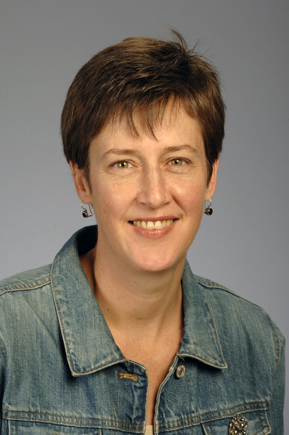Support for Troops, After Combat
SSW gets $1.5 million to help military families

BU’s School of Social Work, the only school of social work tapped to tackle post-traumatic stress disorder (PTSD) issues stemming from the wars in Iraq and Afghanistan, has won a $1.5 million grant from the U.S. Department of Defense (DOD) to study the impact of war-related stress on military families.
Ellen DeVoe and Ruth Paris, SSW assistant professors, have teamed up with Betsy McAlister Groves, director of the Child Witness to Violence Project at Boston Medical Center, to examine the impact of deployment stress and combat trauma on military families with young children and to develop sustainable programs to deal with issues such as separation and reassimilation. The four-year collaborative effort also involves experts from the School of Public Health and the Veterans Affairs Boston Healthcare System.
“We have come together around our interest in trauma and young children,” says lead researcher DeVoe. “We’re really focusing on the reintegration piece and what that means for children and parents, and how soldiers can come back into a family after they’ve been gone from 6 to 18 months. There are a lot of challenges, especially if a service member has a combat stress or other mental health issues.”
The project will unfold in three phases, starting with extensive interviews with returning service members, their spouses, and outside care providers. The second phase will be the development of a pilot program for at-home intervention. The final phase will test the program and compare it with existing services that treat only the soldier.
Until now, the DOD has focused on those serving in the theaters of operation, DeVoe says, “which makes sense because they need that person to do well.” The new study will take a more ecological perspective, she says, and consider how one family member impacts the others, particularly young children who are in critical stages of development.
“We’re trying to promote a healthy relationship between parents and children,” she says. “If you think about what that length of separation means for a child from infancy to five years old, they don’t really have a way to understand where this person went, even though we tell them and show them pictures. Military families are doing an incredible job trying to maintain those connections with technology. But the separation for a two-year-old may feel like a death because that person is just gone.”
By the same token, a returning soldier can seem a stranger in the home, DeVoe says. “A lot of trauma in the parents may be manifested by avoidance, and when you avoid kids they feel rejected. If soldiers have PTSD, they can be triggered by a toddler having a tantrum and that might send them into a flashback, and obviously that’s not a healthful situation in a home environment.”
She says the current wars are different from a conflict like Vietnam, which involved conscription. “These may be people who had signed up for the Reserves or the National Guard, and are doing this on weekends and have families and didn’t really expect to be deployed in a war. In Vietnam, there were a lot of 18-year-olds,” she says.
Groves (SSW’75), whose Child Witness to Violence Project is a counseling program that focuses on young children traumatized by violence, is an associate professor of pediatrics at the School of Medicine. She stresses that not all military families need intervention, and many families that do need it don’t get it. “What we’ve leaned about families where a parent has been affected by trauma is that children are acutely aware of the change in the parent, that it affects the parent’s energy or focus on parenting,” she says.
For Paris, the increasing numbers of female service members injects another unknown into the mix. “Some 15 percent of service members are women,” she says. “Some are mothers of very young children. That is really new. The issue of harassment in the military, which has been written about recently, can really compound the issues of trauma for many women. There’s not a lot written on women who are deployed in Iraq. They’re soldiers. They take their military duty very seriously. But they are mothers. How does this all fit together? We don’t know. We’re going to find out.”
To read more about BU researchers working with women vets, read “When Mommy Comes Marching Home” in the fall 2008 issue of Bostonia.
Caleb Daniloff can be reached at cdanilof@bu.edu.
Comments & Discussion
Boston University moderates comments to facilitate an informed, substantive, civil conversation. Abusive, profane, self-promotional, misleading, incoherent or off-topic comments will be rejected. Moderators are staffed during regular business hours (EST) and can only accept comments written in English. Statistics or facts must include a citation or a link to the citation.